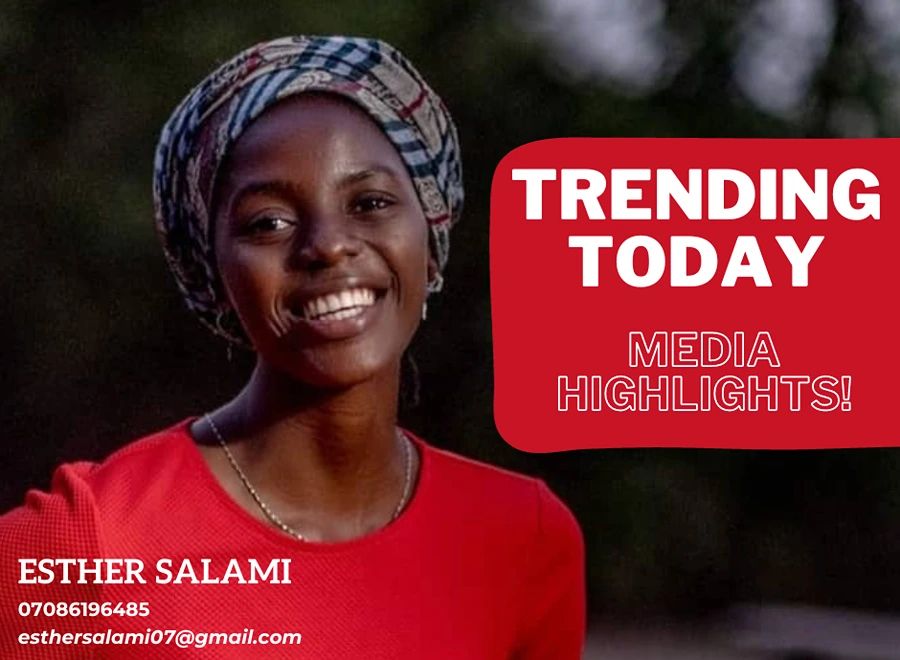Hello and welcome! In today’s trending news stories;
1. The Nigeria Labour Congress (NLC) has called for a nationwide boycott of telecommunication services to protest the Nigerian Communications Commission’s (NCC) recent approval of a 50% increase in telecom tariffs. The tariff hike, which raised call costs to N16.5 per minute, 1GB of data to N431.25, and SMS prices to N6, was introduced to address rising operational costs faced by telecom operators. NLC President Joe Ajaero criticized the hike, as having an impact on Nigerians already struggling with economic hardships. He noted that the average Nigerian worker spends 10% of their income on telecom services, and with the current minimum wage of N70,000, the increased costs would raise this expense to 15% of wages—an unsustainable burden. While the NCC justified the hike as necessary for balancing rising costs and sustaining the industry, the NLC urged the government, NCC, and National Assembly to halt the implementation and seek a more reasonable solution. The NLC does not oppose tariff reviews but insists on fair and humane increases. The Federal Competition and Consumer Protection Commission (FCCPC) also emphasized that the tariff hike must result in better service quality, addressing ongoing issues like dropped calls, network congestion, and inconsistent internet speeds. Telcos, facing a 300% rise in operational costs, have defended the hike as essential for infrastructure investment and improved services.
2. President Bola Tinubu has directed National Security Adviser Nuhu Ribadu to lead negotiations with stakeholders in Ogoniland to facilitate the resumption of oil production in the Niger Delta. During a meeting with Ogoni leaders, Rivers State Governor Siminalayi Fubara, and other officials at Aso Villa, Tinubu called for reconciliation, peace, development, and environmental restoration. The President urged Ogoni leaders to set aside historical grievances and work toward justice and sustainable progress. He called on the Nigerian National Petroleum Company (NNPC) Limited, the Rivers State Government, and relevant ministers to collaborate with the NSA to achieve this goal. Ogoni leaders and advocacy groups have long demanded accountability for environmental damage caused by crude oil pollution since 1958, which halted oil production in the area in 1993. Their demands include implementing the UNEP report, holding oil companies accountable, recognizing Ken Saro-Wiwa as an environmental hero, transitioning to renewable energy, and ending military intimidation in the region.
3. Vice-President Kashim Shettima joined global leaders at the World Economic Forum (WEF) in Davos to advocate for the full implementation of the African Continental Free Trade Area (AfCFTA), aiming to grow Africa’s economy to $29 trillion by 2050. Speaking at the “Friends of AfCFTA” forum, Shettima said Nigeria was committed to leading AfCFTA efforts and leveraging Africa’s digital and economic potential for integration and transformation. Shettima highlighted Nigeria’s strengths, including its 220 million telecom subscribers and 163 million internet users, which position the country for growth in the knowledge economy. He noted that while Nigeria’s oil earnings peaked at $35 billion in 2011, India’s outsourcing industry generated $120 billion in 2024. WEF President Borge Brende echoed the transformative potential of AfCFTA, stating it could increase intra-African trade by 50% and citing Africa’s young population as a key driver of economic growth. He emphasized the need to create jobs for Africa’s youth to realize this potential.
4. President Bola Tinubu has appointed Kayode Opeifa as the managing director of the Nigeria Railway Corporation (NRC), succeeding acting MD Ben Iloanusi, who held the role after Fidet Okhiri’s tenure ended. The presidency has yet to release an official statement confirming the appointment. Opeifa, a former Lagos state commissioner for transportation under Babatunde Fashola, has extensive experience in transport management. He joined the NRC board in 2019 under former President Muhammadu Buhari and was appointed MD of the Abuja Urban Mass Transit Company Limited (AUMTCO) in 2023. Opeifa also served as the transport secretary for the federal capital territory (FCT) and vice-chairman of the presidential task team addressing Apapa traffic congestion, chaired by former Vice President Yemi Osinbajo. This appointment follows Tinubu’s recent approval of Zahrah Audu as director-general of the Presidential Enabling Business Environment Council (PEBEC).
5. Former U.S. President Donald Trump has warned of imposing high tariffs and further sanctions on Russia if President Vladimir Putin does not end the war in Ukraine. Writing on Truth Social, Trump claimed his push to settle the conflict would benefit Russia, urging an end to the war “the easy way” through negotiations. He also threatened economic penalties on Russian exports, despite many already being heavily restricted since 2022. Putin has expressed a willingness to negotiate, but only if Ukraine accepts Russia’s territorial gains and halts its NATO aspirations. Ukraine, however, remains unwilling to cede territory permanently. President Volodymyr Zelensky called for U.S.-backed peacekeeping forces to ensure Russian deterrence. While Trump promised swift negotiations, Ukrainians remain skeptical, criticizing sanctions as insufficient and doubting Putin’s willingness to compromise. Meanwhile, discussions in Moscow hint at a potential softening of Kremlin ambitions, though Russian hardliners resist any concessions. Despite Trump’s rhetoric, Ukrainians are cautious, focusing on tangible actions rather than words.



